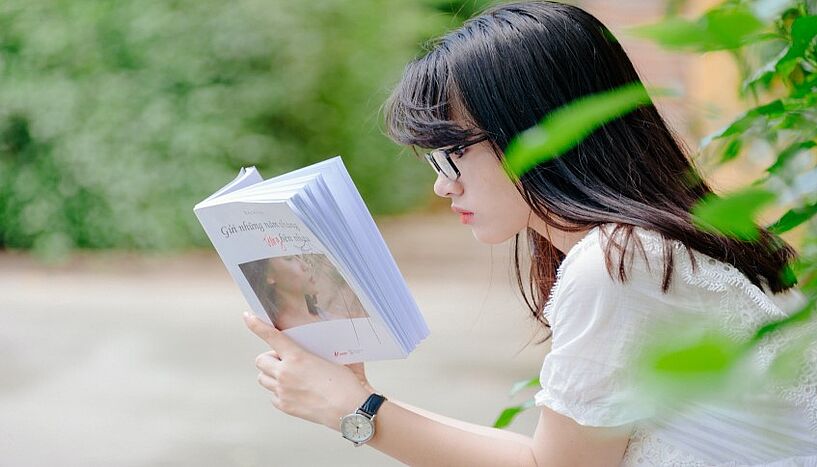Consuming traditional media has little impact on well-being
07. Januar 2022
(© pexels.com / Min An)
Engaging with traditional media not associated with happiness or anxiety levels
Consuming traditional forms of media – including books, music and television – has little effect on short-term adult well-being, according to a new study by researchers from the University of Oxford and the University of Vienna, published in Nature Scientific Reports.
It is often assumed that engaging with traditional types of media improves well-being, while using newer types of media, such as social media, worsens well-being. However, evidence of traditional media consumption improving well-being has been lacking.
In their new paper, ‘No effect of different types of media on well-being’, scientists of the University of Oxford and the University of Vienna studied the media consumption habits and well-being levels of 2,159 UK adults between April and May 2020 during the pandemic, using data collected via a nationally representative survey. Through weekly surveys, conducted over six weeks, participants reported the time they had spent engaging with music, television, films, video games, books, magazines and audiobooks during the previous week and their happiness and anxiety levels during the previous day.
The researchers found that those who consumed books, magazines or audiobooks had similar happiness and anxiety levels to those who did not, while those who engaged with music, television, films and video games tended to have lower happiness and higher anxiety levels than those who did not. However, those differences were small and not causal. That is, the differences were apparent both ways: Those with lower happiness and higher anxiety levels were also more likely to engage with music, television, films and video games, but not books, magazines or audiobooks.
To get a better understanding of causality, the researchers also looked at users individually. The results showed that if a specific user changed their media behaviour, this change was not associated with substantial changes in anxiety or happiness levels. The findings suggest that the overall impact of consuming traditional media on short-term well-being are negligible.
Tobias Dienlin from the University of Vienna, Department of Communication, sums up, "This is another study where we find that consuming media has a surprisingly small impact on our well-being. However, in the public one can often hear that media have a very detrimental impact. Our study doesn’t support such claims." So says lead author Niklas Johannes, University of Oxford, "There is a popular misconception that all forms of new media, in particular social media, have a negative impact on our mental health but consuming traditional media such as reading books, is good for us. Yet that isn’t necessarily the case, as our latest research shows".
Original publication:
Johannes, N., Dienlin, T., Bakhshi, H. et al. No effect of different types of media on well-being. Sci Rep 12, 61 (2022).
Wissenschaftlicher Kontakt
Ass.-Prof. Dipl.-Psych. Dr. Tobias Dienlin
Institut für Publizistik- und Kommunikationswissenschaft1090 - Wien, Währinger Straße 29
+43-1-4277-49314
tobias.dienlin@univie.ac.at
Rückfragehinweis
Mag. Alexandra Frey
Media Relations ManagerUniversität Wien
1010 - Wien, Universitätsring 1
+43-1-4277-17533
+43-664-8175675
alexandra.frey@univie.ac.at
